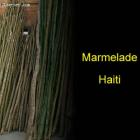Food Subsidies or Agricultural Investment? Which is Best for Haiti's Economy?
ADVERTISEMENT
The government of Haiti (GOH) and outside donors pay no attention to the agricultural sector, pertaining to its growth and sustainability. The industry accounts for one-quarter of gross domestic product (GDP), but that figure has dropped. For many decades, scant investment from GOH and outside donors has occurred. Conversely, food-aid funding outpaces agricultural funding by more than 50%.
The UN High Level Task Force on Global Food Security Crisis (UNTFGFC) regrets Haiti's agricultural industry has been given a death warrant by GOH and other international agencies for 30 years. UNTFGFC attacks them for poor coordination of programs that work against each other, and interminable meetings that fail to present real solutions.
Food aid programs geared to reduce food insufficiency are instead creating more problems . World Vision, for example, focuses its U.S.-sponsored food program on pregnant and neo-natal mothers. But a serious downside exists. Girls as young as 12 are conceiving children to enter the program. A population boom has resulted, in an already-crippled food economy.
Many factors play into the food insufficiency problem, producing compromised agricultural production:
• Deforestation creating soil erosion.
• Paucity of seedling and soil enrichers.
• Underdeveloped road networks.
Adding to the woes of producing crop yields are government-discounted foreign imports, for example, U.S. rice, displacing domestic rice growing, affecting Haiti's economy for the worse.
Although GOH and food donors have started programs to improve roads and agricultural output, farmers still continue to abandon their fields. No training in the latest farming technology, and inability to contend with subsidized food imports leaves them any option but to leave their farmlands.
Another strike against Haiti's agricultural industry is economists, who believe subsistence farming a poverty setup. But on the flip side of the coin, other economists acknowledge priorities in confronting the problem are necessary:
• Outsourcing of assistance and crop-dependence away from Port-au-Prince to remoter regions.
• Environmental rehabilititation of agricultural deterioration.
• Viable job creation in a manual-labor sector that suffers one of the gravest numbers of unemployed workers in the South region.
• Movement away from outside food importation and consequent price hikes that prey upon the most vulnerable.
The statistics pointing to food insufficiency are alarming. 90% of half of Haitians, who live in rural areas, are living on less than $2 each day. And of 66% residing in those same areas, 33% subsist on less than $1.00 each day.
But a dawning awareness amid outside donors and the GOH is fundamental change in the agricultural sector must happen in order to grow Haiti's economy. And that change must occur within Haiti's borders. In response, the GOH has instituted a National Agricultural Investment Plan directed at production for domestic use.
Read more: food, economy, Investment, Agriculture, Food Security, Business & Finance, Agriculture and Food
« Making Plantain Purre or Labouyi Bannann, the Haitian Way | Main | Food distribution program in Savanette suspected for increase in pregnancy »
Leave a Reply
Name (required) E-mail (required, will not be published)
» »
Our objective is to share with you news and information about Haiti and the people of Haiti. Traditions, habits and the way we were or grew are alive in this site. We highly recommend that you Subscribe to our Newsletter and also share with us some of the things that are memorable and made us unique people.


 Lascahobas, Haiti
Lascahobas, Haiti  Saint Marc, Haiti
Saint Marc, Haiti  Saint Michel de L 'Atalaye
Saint Michel de L 'Atalaye  Marmelade, Haiti
Marmelade, Haiti  Haitians are a Proud People
Haitians are a Proud People